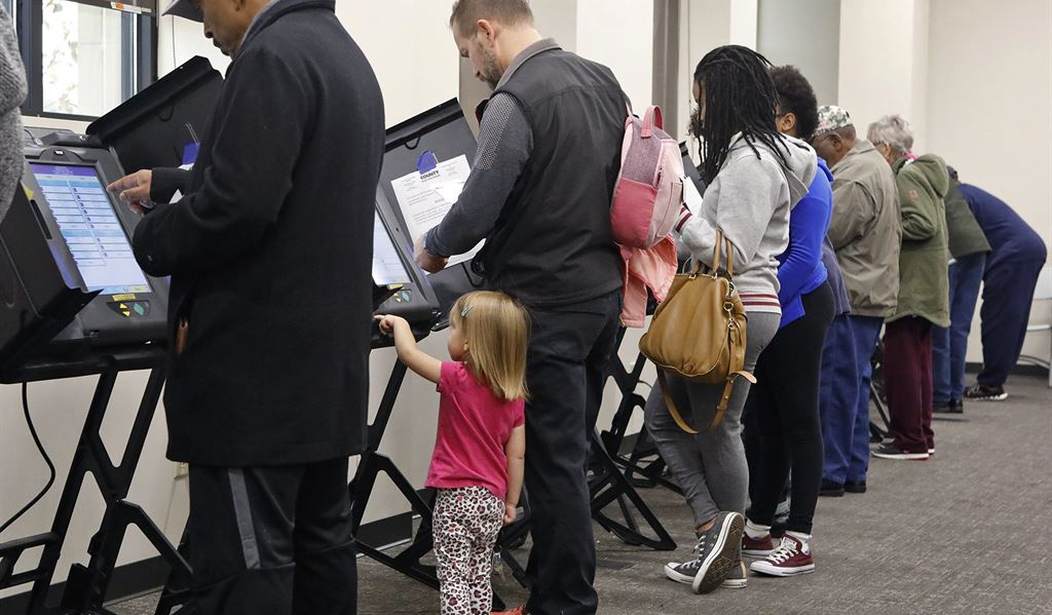The Department of Justice announced on Monday that it will send election monitors to 64 jurisdictions in 24 states. The purpose of the election monitors is to monitor compliance with federal voting rights laws. The press release references the Voting Rights Act of 1965 as justification for the deployment of monitors to protect the rights of voters.
Monitors will include personnel from the Civil Rights Division and from U.S. Attorneys’ Offices. In addition, the division also deploys monitors from the Office of Personnel Management, where authorized by federal court order. Division personnel will also maintain contact with state and local election officials.
The Civil Rights Division’s Voting Section enforces the civil provisions of federal statutes that protect the right to vote, including the Voting Rights Act, the Uniformed and Overseas Citizens Absentee Voting Act, the National Voter Registration Act, the Help America Vote Act and the Civil Rights Acts. The division’s Disability Rights Section enforces the Americans with Disabilities Act (ADA) to ensure that persons with disabilities have a full and equal opportunity to vote. The division’s Criminal Section enforces federal criminal statutes that prohibit voter intimidation and voter suppression based on race, color, national origin or religion.
On Election Day, Civil Rights Division personnel will be available all day to receive complaints from the public related to possible violations of the federal voting rights laws by a complaint form on the department’s website https://civilrights.justice.gov/ or by telephone toll-free at 800-253-3931.
Individuals with questions or complaints related to the ADA may call the department’s toll-free ADA information line at 800-514-0301 or 833-610-1264 (TTY) or submit a complaint through a link on the department’s ADA website, at https://www.ada.gov/.
Complaints related to disruption at a polling place should always be reported immediately to local election officials (including officials in the polling place). Complaints related to violence, threats of violence or intimidation at a polling place should be reported immediately to local police authorities by calling 911. These complaints should also be reported to the department after local authorities have been contacted.
The Justice Department recently announced its overall plans for the general election to protect the right to vote and secure the integrity of the voting process through the work of the Civil Rights Division, Criminal Division, National Security Division and U.S. Attorneys’ Offices.
Is your state on of those included in the DOJ’s operation? Mine is. The 24 states are Alaska, Arizona, Arkansas, California, Florida, Georgia, Massachusetts, Maryland, Michigan, Minnesota, Missouri, North Carolina, New Jersey, New Mexico, Nevada, New York, Ohio, Pennsylvania, Rhode Island, South Carolina, Texas, Utah, Virginia, and Wisconsin. Some of the states named are obvious choices. Some are big states, some are states with important races being scrutinized by everyone, some look to be random choices. There are election monitors coming to Texas, though there have been no complaints recorded so far. Over 5.5 million Texas voters have already cast their ballots before Election Day.
Monitoring specific jurisdictions in various states is routine for DOJ in big elections. It has been done since the Voting Rights Act was passed. For comparison, 18 states and 44 cities and counties were monitored by DOJ in 2020. It’s interesting that less states were monitored during a presidential election than are being monitored during a midterm election now, right? Maybe it was because of the pandemic and the challenges it presented.
Some of the most anticipated races of the election will occur among the states chosen for monitoring. Incumbent GOP Sen. Marco Rubio of Florida is up against Democratic Rep. Val Demings for U.S. Senate. Georgia voters will choose between Democratic Sen. Raphael Warnock and former President Donald Trump’s pick, Republican Herschel Walker. And Sen. Mark Kelly, D-Ariz., will defend his seat against venture capitalist Republican Blake Masters.
DOJ monitors elections with several voter protection acts in consideration. Besides the Voting Rights Act, these legal protections include the Uniformed and Overseas Citizens Absentee Voting Act, the National Voter Registration Act, the Help America Vote Act, the Civil Rights Acts and the Americans with Disabilities Act.
In Texas, three counties will be monitored – Dallas, Harris (Houston), and Waller counties. I can understand the need for monitors in Harris County since the Democrats in charge of the county botched things up so badly during the 2020 presidential primary voting, for example. That was a local problem, as local officials are in charge of elections. DOJ doesn’t give specifications on their selection process, though.
The department did not specify how it made its selections for monitoring, though Harris and Waller counties have made the list in the last four presidential and midterm elections. Harris County has recently been the site of electoral catastrophes such as the 2020 presidential primary when voters at a polling place on the Texas Southern University campus — one of the nation’s largest historically Black colleges — were left waiting six hours to cast their ballots.
Rural Waller County is home to Prairie View A&M University, a historically Black campus, where generations of students have been caught up in the long struggle for voting rights. The latest chapter of that struggle began in 2018 when a group of students sued the county over a lopsided early voting schedule that offered students — most of them Black — fewer opportunities to vote early than the county’s white residents. Following the suit, the county’s commissioner court extended hours at an on-campus polling place, though a federal judge ruled years later that the county had not discriminated against the students.
Harris and Dallas are also the state’s largest and second-largest counties and home to large populations of Black and Latino voters.
It’s a big day. It’s time for a change in America and voters have the power to make that change. I think it’s going to be a great day for Republicans and America. Let’s hope that happens without unnecessary drama and shenanigans from anyone.







Join the conversation as a VIP Member